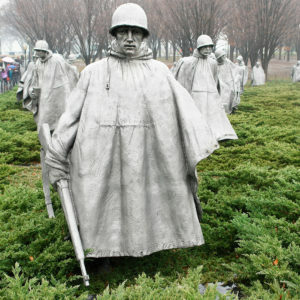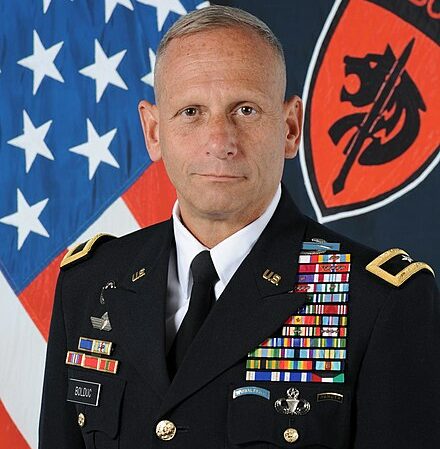The political landscape in the United States has been marked by an alarming level of divisiveness and inappropriate behavior by candidates and political leaders. This environment not only undermines the principles of democracy but also places an undue burden on our military. Promoting the idea that our service members must intervene in political matters is not only misguided; it is also an insult to our Founding Fathers, our citizens, and the essence of what it means to serve.
The Founding Fathers envisioned a nation where civilian leadership would guide the country, ensuring that the military remained subservient to civilian authority. This principle is foundational to our democracy, safeguarding against the potential for military overreach and the erosion of our rights. When political divisiveness reaches a point where military involvement is suggested as a solution, it reflects a failure to uphold the democratic ideals upon which this nation was built. Our Founding Fathers fought for a system that would empower citizens to resolve their differences through dialogue and debate, not by calling on those who serve to intervene in governance matters.
Moreover, the expectation that our military should engage in political disputes disrespects the sacrifices made by service members and veterans. These individuals have dedicated their lives to protecting our freedoms, often at significant personal cost. They deserve a nation that honors their service by fostering an environment of respect, unity and constructive dialogue. When political leaders resort to inflammatory rhetoric and divisive tactics, they not only diminish the value of service but also create a climate where veterans and active-duty personnel feel compelled to take sides rather than standing as impartial defenders of the nation.
This divisiveness sends a troubling message not just to our citizens but to the world. As the United States has long positioned itself as a beacon of democracy and freedom, the behavior of our political leaders serves as a reflection of our values on the global stage. When we allow political disputes to overshadow our foundational principles, we risk losing the trust and respect of other nations. The expectation that our military must step in to restore order or resolve conflicts erodes the credibility of the United States as a leader in promoting democratic ideals and human rights.
The solution to this crisis lies in fostering a culture of respect and dialogue among our leaders and citizens. We must demand that elected officials engage in civil discourse, prioritizing the well-being of our nation over partisan agendas. This includes holding candidates accountable for their behavior and ensuring that they exemplify the values we hold dear.
As we approach Veterans Day, a time dedicated to honoring those who have served in the U.S. armed forces, it is vital to reflect on the sacrifices made by these brave individuals. They have pledged their lives to protect and uphold the values and principles that form the bedrock of our great nation. In a society where less than 1 percent of the population serves in the military, and 24 million veterans reside among us, it becomes essential for those who have not served to understand the profound significance of this day and to honor the commitment of veterans.
The commitment serving one’s country is not one to be taken lightly. Veterans have endured hardships, faced danger and often returned home changed by their experiences. Their sacrifices extend beyond the battlefield; they embody the spirit of service, resilience and dedication central to the American identity. Consequently, it is incumbent upon all of us — especially those who have not served — to recognize and honor their contributions, not just on Veterans Day but throughout the year.
In the context of the recent election season, when political rhetoric was often divisive, we must remember the importance of conducting ourselves with dignity. Most members of Congress, along with many candidates for public office, have not served in the military. This reality presents a unique challenge: How do we engage in political discourse while maintaining respect for those who have made the ultimate sacrifice? We must approach our civic duties with honor and respect, ensuring that our words and actions reflect the values our veterans fought to protect.
The recent election serves as a critical reminder of our collective responsibility. As citizens, we must engage in discussions about leadership and governance with an understanding of the sacrifices made by those who defended our freedoms. We must ensure that the political landscape remains respectful and dignified, regardless of differing opinions. Engaging in constructive dialogue and honoring the service of our veterans can bridge divides and foster a culture of respect and understanding.
While America is not without its flaws, it remains a beacon of hope and opportunity for many worldwide. The values of democracy, freedom and equality enshrined in our Constitution are worth defending. Through our actions and examples, we can inspire trust and respect from other nations. As we honor our veterans, we must also commit to upholding the principles they fought for, ensuring that our conduct — in political arenas and everyday life — reflects the dignity and respect veterans deserve.
As we gather to commemorate Veterans Day, let us take a moment to express our gratitude not only for the sacrifices of our veterans but also for the lessons they impart. Their commitment to service teaches us the importance of selflessness, integrity and resilience. These values are essential, especially during political division and societal unrest. By embodying these principles, we can create an environment that honors their legacy and fosters unity among all citizens.
In recognizing Veterans Day, we acknowledge the sacrifices made by millions who have donned the uniform. We must also remember that our responsibility extends beyond mere acknowledgment; it requires action. We can support veterans by advocating for their needs and ensuring they have access to healthcare, education and resources that facilitate their reintegration into civilian life. By doing so, we affirm our commitment to those who served, honoring their sacrifices with tangible support.
Let us prioritize respect and dignity in our discourse. Each candidate and elected official, regardless of their military background, has the potential to contribute positively to our nation. However, our duty as citizens is to hold them accountable and demand that they uphold the values that make America exceptional. We must engage with our representatives, urging them to prioritize the well-being of our veterans and to recognize the sacrifices made for our freedoms.
Let us commit to honoring veterans through our actions and attitudes. We have the power to create a culture of respect and dignity that reflects the sacrifices of those who served. By standing united, we can ensure that the values of our great nation are preserved and celebrated, not just on a designated day but every day. In doing so, we honor our veterans and solidify our commitment to building a better future for all Americans — a future worthy of their sacrifices.


